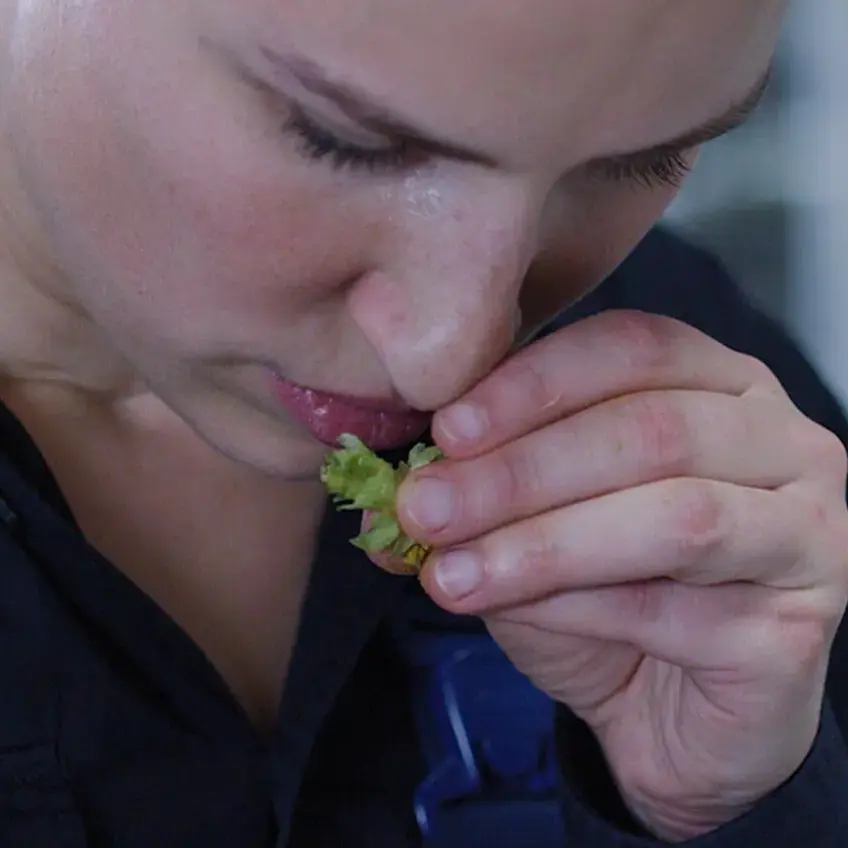
Hops.
The Soul Of Beer.
Abstract
Of course hops belong in every FLENS. But did you know that the hops in beer are actually a she? We explain that and much more today & here!
The Soul Of Beer.
Hops give our beer its pleasantly tart, slightly bitter taste and lend it its typical aroma. We also owe the firm head on freshly tapped beer to hops.
Depending on the proportion of bitter substances or aromatic hop oils, we also differentiate between bitter and aroma hops. We source the hops for our Flensburg beers from the largest hop-growing region in Bavaria: the Hallertau.
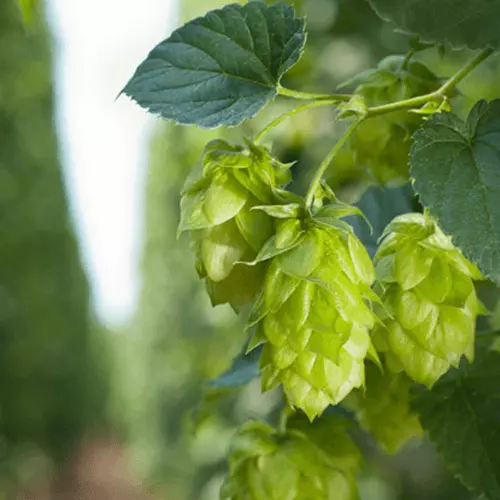
Why Are Hops Essential In Beer?
The German Beer Purity Law states that exactly four ingredients are needed to make beer: Yeast, barley malt, water and, of course, hops. At our brewery in Flensburg, hops are one of the most important ingredients for giving our beers their unmistakable character.
This is because hops not only provide the bitter note in the beer, but also contribute to its shelf life: Hops are a natural preservative for beer and prevent the growth of pathogenic germs.
The Hop Plant: A Climbing Cannabis Plant.
Hops are a climbing plant that belongs to the hemp family. Hops can be harvested once a year, for just two weeks. Between the end of August and mid-September, hops are therefore diligently harvested so that beer can continue to be brewed in the breweries.
A distinction is made between two types of hops: The male hop and the female hop. However, only the hops from the female plants are used to brew beer. In the hop-growing regions, only female plants grow and thrive from the outset in order to avoid unwanted fertilization with the male plants.
The hops harvested from the female plant are called cones. They consist of stems, leaves and lupulin. Lupulin is the most important component of hops, is located on the inside of the leaf and can be recognized in the form of small, yellow, sticky globules.
Lupulin, also known as hop flour, is one of the most important ingredients in beer brewing. This is because it gives our beers the necessary aroma, the desired bitterness and ensures a strong head when our FLENS is consumed from a glass and not from a swing-top bottle.
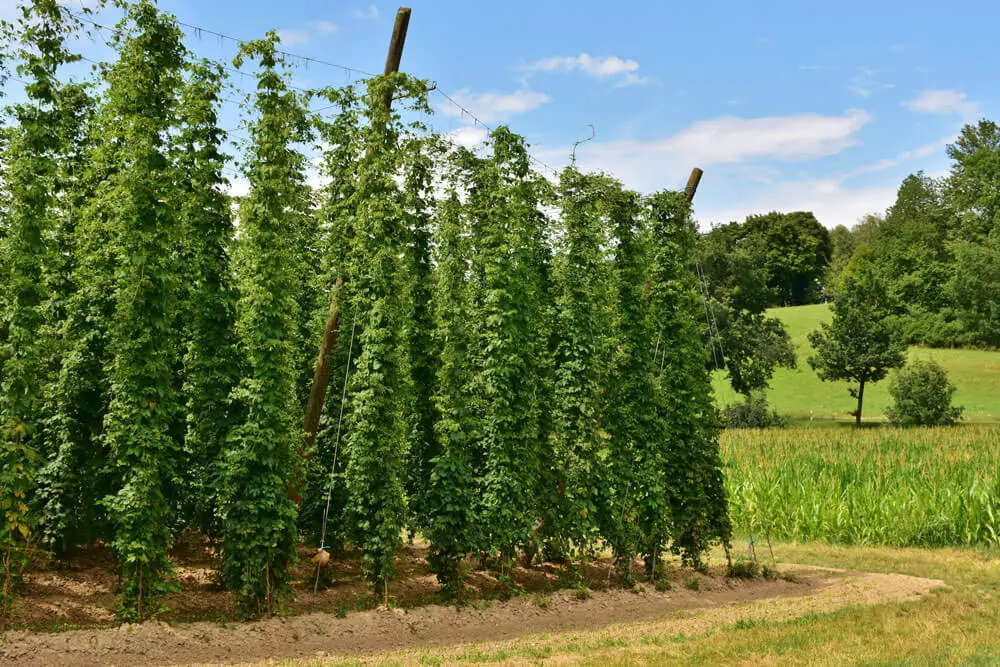
Hop Varieties: Aroma Hops And Bitter Hops.
A wide variety of hop varieties can be used when brewing beer. Because one thing is certain: no beer without hops! Two types of hops are used particularly frequently when brewing beer: aroma hops and bittering hops. These two hop varieties differ in their alpha acid content. Alpha acid is responsible for the bitter taste in beer.
Aroma hops are classed as noble hops and are mainly grown in the Hallertau region. As they contain less than 10 % alpha acid, they are used when brewing beer that should be characterized by a subtle, bitter note. Do you want the bitterness to be a little more intense? Then bitter hops come into play. This is because it has a higher proportion of alpha acid. Alternatively, the amount of aroma hops can be increased to achieve the same bitterness as with fewer bitter hops.
Most breweries use bittering hops to brew their beer as this is more cost effective than using aroma hops. Some of our beers are brewed exclusively with aroma hops to give them a pleasant, characteristic hop note. These include our Flensburger Gold or our Flensburger Frühlingsbock, for example. But our Flensburger Pilsener and our Flensburger Dunkel also contain a high proportion of highly refined aroma hops.
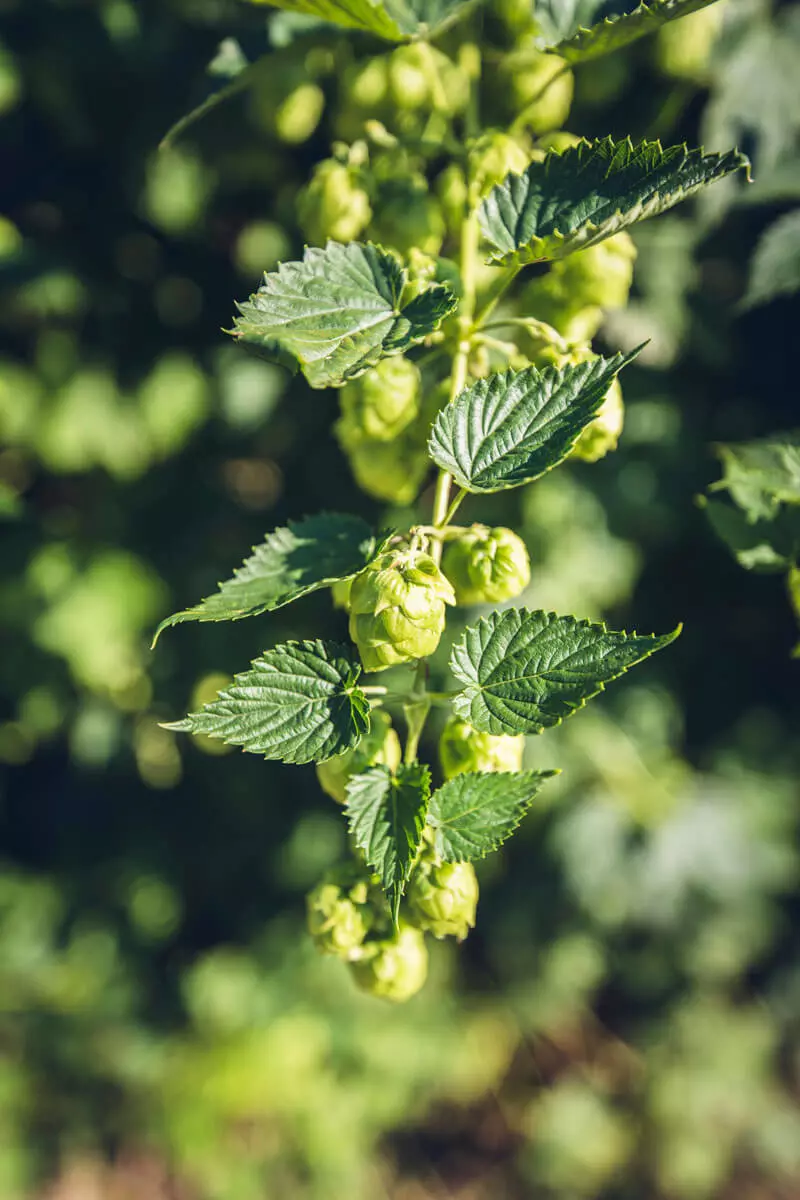
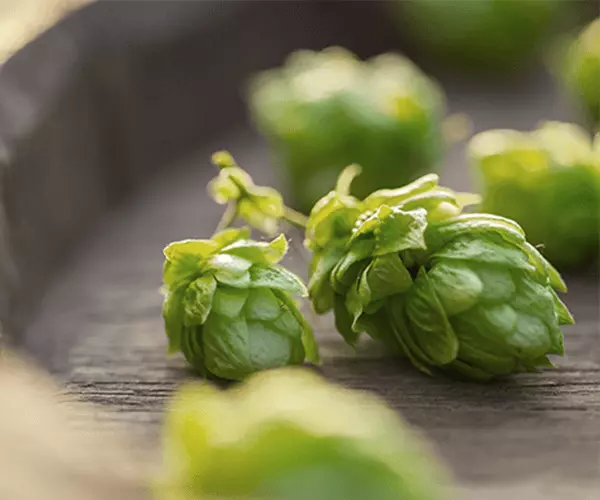
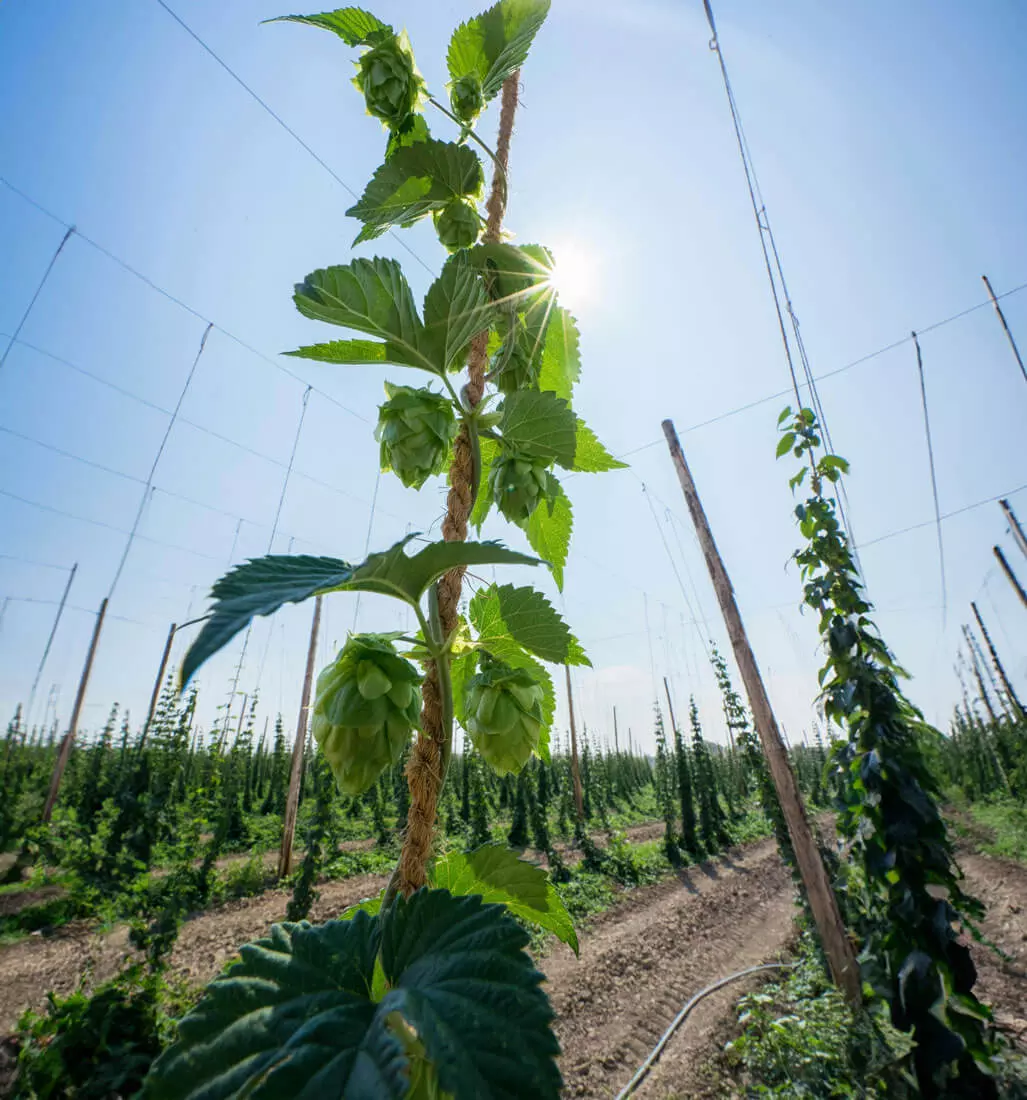
Hop Addition And Hop Tamping.
Who wants to know how many hops are added to beer? This varies from beer type to beer type. Between 120 g and 150 g of hops per 100 liters of beer are added to a normally hopped beer. However, a Pilsner, for example, is more heavily hopped than a wheat beer. A wheat beer contains just half as much hops as a pilsner.
But when are hops added to beer? This depends on how bitter the beer should be in the end. In the case of bittering hops, for example, the earlier the hops are added to the beer, the more bitter the taste. This is because the hops are added during the boiling process.
The situation is different with hop tamping: No additional bitter substances are released here. This is because the hops are added to the beer brew at room temperature, either loose or in a hop bag, when it has already cooled down. This is why the process of hop hopping is also known as cold hopping. As the beer brew has already cooled down, this process allows beers to be refined with additional aromas without releasing additional bitter substances.




